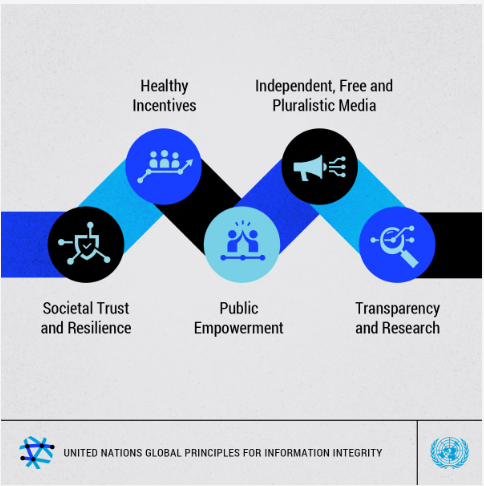7667766266
enquiry@shankarias.in
The United Nations Secretary-General recently unveiled the Global Principles for Information Integrity.

|
Measures by India in tackling Hate Speech/ Misinformation |
|